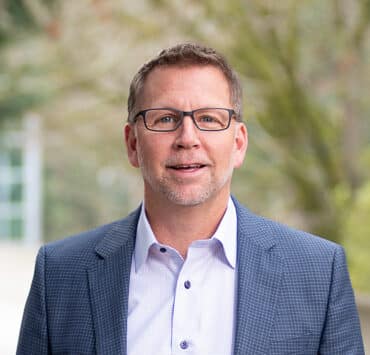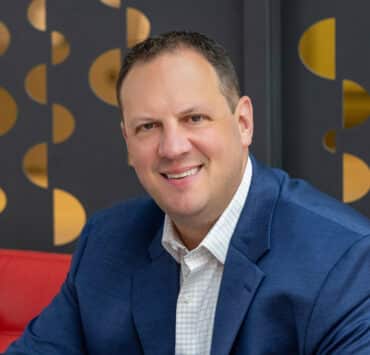It’s not about perfection, it’s about adaptability. Michael Simpson learned that lesson early. The chairman and CEO of Clinisys has seen perfection as an enemy of progress since his days as a Boy Scout, and later an Eagle Scout. Success is rooted in preparation, not perfection.
“Scouting taught me the importance of always having a plan B, a plan C, and a plan D,” Simpson says. “Nothing ever goes as planned, and it’s how you deal with that shift that, I think, can say everything about you. Ninety-nine percent of the time, the secret of success is just moving forward and pivoting when you need to.”
As the leader of Clinisys, a global provider of intelligent laboratory informatics solutions, Simpson has taken the company through an extensive transformation since 2017. This transformation is strongly aligned to his vision of responsibility to his customers to not only deliver the solutions of today, but to also future proof their investments.
Established in 1979, with forty-five years of sustained growth and experience, Clinisys has expanded to serve customers in thirty-nine countries and in five languages (English, French, German, Dutch, and Spanish). This reach has been made possible through strategic acquisitions of solutions that best suit their customers along this transformational journey, of which a few of these companies are rooted in thirty-plus years of experience.
“I smile because it’s age in both culture and technology,” the CEO says. “So, there has been a lot to do. The laboratory is at the center of our universe, it is all we do, and we do it very well.”
Four Simple Values
Simpson says he is most proud of helping Clinisys transition to acting as a values-based organization. The company aspires for all 1,400-plus employees living throughout the globe to understand and exemplify Clinisys’ four values: customers, promises, simplicity, and teamwork.
When it comes to customers, Simpson shares that Clinisys uses the phrase “caring courageously” because it means that employees will do whatever it takes to keep the promises they made, to do it in the simplest method possible, and to do it as one single, unified team, keeping the customer at the center of all they do.
“Understanding and living those values is so important because it is so easy to get hung up on percentage points and lose track of what this job is all about,” he says. “We are still on this transformational journey, and I see our people around the world in different countries and cultures making sure they are taking care of our customers every day. Whether that is financially advantageous for us at the moment or not, we do what we say we’re going to do.”
Doing what is right for the customer means helping show them the way to the future. That means taking their customers through a vital journey into the cloud. Simpson says given the current state of tech and the unprecedented pace of innovation, people must acknowledge this essential technology is not happening on-premise or in an IT shop, nor will it in the future. And if Clinisys is not helping take their customers to the cloud, who will?
“The laboratory is at the center of our universe, it is all we do, and we do it very well.”
Michael Simpson
Simpson says helping customers move to the cloud is not just about today, it’s about thirty years from now. The changes made today will ensure that scientists and clinicians can stay focused on their work while Clinisys handles the tech.
“We’ve got dedicated teams to support the current tech twenty-four hours a day, and we also have dedicated teams focused on the next generation of products,” the CEO says. “Then there’s the in-between. How do you convince your customers who are using current technology to transition towards the future?”
Security Is Not Free
Part of the complexity lies in just how high the stakes are. Regulations are most often seen as an obstacle by customers leaving them feeling as if they cannot move forward into the cloud.
“I always ask, ‘When was the last time your internal IT company did a security audit of your on-premise solution?’” Simpson says. “Some organizations have it covered. Others have three people in an office somewhere, but they are not taking advantage of the one hundred thousand [people] that a Microsoft or Amazon or Crowdstrike has working on the frontlines of this kind of security.”
The other significant challenge, the one that Simpson admits can keep him up at night, is the question of cost. Security is not free. To be more secure, more resources need to be allocated. Simpson knows that costs are going to continue to rise. Charging per security test is a shift that is coming, and the entire industry is grappling with who can shoulder those costs, especially given the inflation over the last five years.
But these questions are also fascinating to Simpson. He has been described as “constantly inquisitive,” and it shows. An inspirational phrase quoted on a plaque behind his desk has followed him from job to job. It’s a saying he first learned from a boss and mentor, and Simpson is carrying on the tradition. The sign reads: You get what you inspect, not what you expect.
“My job is always to take it up a level and allow different kinds of conversation that help people see the bigger picture,” Simpson says. In this case, the bigger picture is the saying that hangs behind his wall to this day.


